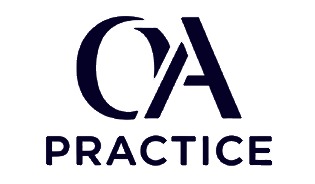D425 Introduction to Chemistry - Set 4 - Part 1
Test your knowledge of technical writing concepts with these practice questions. Each question includes detailed explanations to help you understand the correct answers.
Question 1: A museum conservator discovers bronze statues developing green patina over centuries. What chemical process creates this protective layer that actually prevents further deterioration of the underlying metal artifact?
Question 2: Volcanic rocks provide clues about Earth's interior composition. What information do gas bubbles trapped in volcanic glass reveal about conditions deep within the Earth during eruption?
Question 3: Manufacturers add fluoride to toothpaste for cavity prevention. How does fluoride strengthen teeth when it contacts tooth enamel during brushing, making teeth more resistant to decay?
Question 4: Crime scene investigators use luminol to detect blood traces. What component in blood catalyzes the luminol reaction to produce the characteristic blue glow even in minute quantities?
Question 5: Blacksmiths traditionally quenched hot steel in water for hardening. What microstructural transformation occurs during rapid cooling that makes quenched steel much harder than slowly cooled steel?
Question 6: Winemakers add sulfur dioxide to preserve wine quality. Besides preventing oxidation, what other critical role does this compound play in maintaining wine stability during storage?
Question 7: Soap bubbles display rainbow colors before bursting. What optical phenomenon creates these changing colors as the bubble film thins due to evaporation and drainage?
Question 8: Ancient civilizations used lead pipes for water distribution. What chemical reaction between lead and certain water components creates a protective layer that reduced lead poisoning in some regions?
Question 9: Fireflies produce light through biochemical reactions. What makes bioluminescence remarkably efficient compared to traditional light bulbs in terms of energy conversion to visible light?
Question 10: Carbon dating reveals artwork forgeries effectively. Why does this technique work poorly for paintings claimed to be from the twentieth century compared to ancient artifacts?
Question 11: Antacid tablets neutralize excess stomach acid quickly. What gas forms during the reaction between calcium carbonate antacids and stomach acid, causing the familiar burping sensation?
Question 12: Nitrogen fertilizers revolutionized agriculture globally. What industrial process, developed in the early twentieth century, first allowed mass production of ammonia from atmospheric nitrogen?
Question 13: Stainless steel resists corrosion unlike regular steel. What element added to iron creates a passive oxide layer that regenerates when scratched, maintaining corrosion resistance?
Question 14: Soft drinks maintain carbonation until opened. What physical principle explains why carbon dioxide suddenly escapes when you open a pressurized beverage container?
Question 15: Mirror manufacturers apply thin metal coatings to glass. What property of silver makes it superior to other metals for creating highly reflective mirror surfaces historically?
Question 16: Photosynthesis converts light energy into chemical bonds. What metal atom sits at the center of chlorophyll molecules, enabling light absorption for this fundamental biological process?
Question 17: Aluminum was once more valuable than gold. What technological breakthrough in the late nineteenth century made aluminum production economical, transforming it into a common metal?
Question 18: Milk spoilage follows predictable patterns. What chemical change causes milk to develop sour taste and thick consistency when bacteria convert milk sugar during spoilage?
Question 19: Aspirin reduces pain and inflammation effectively. What unique chemical feature allows aspirin to permanently modify its target enzyme, unlike other pain relievers that bind reversibly?
Question 20: Tear gas causes temporary but intense irritation. What molecular feature allows these compounds to trigger pain receptors in eyes and airways without causing permanent damage?
Need Guaranteed Results?
Our exam support service guarantees you'll pass your OA on the first attempt. Pay only after you pass!
Get Exam Support